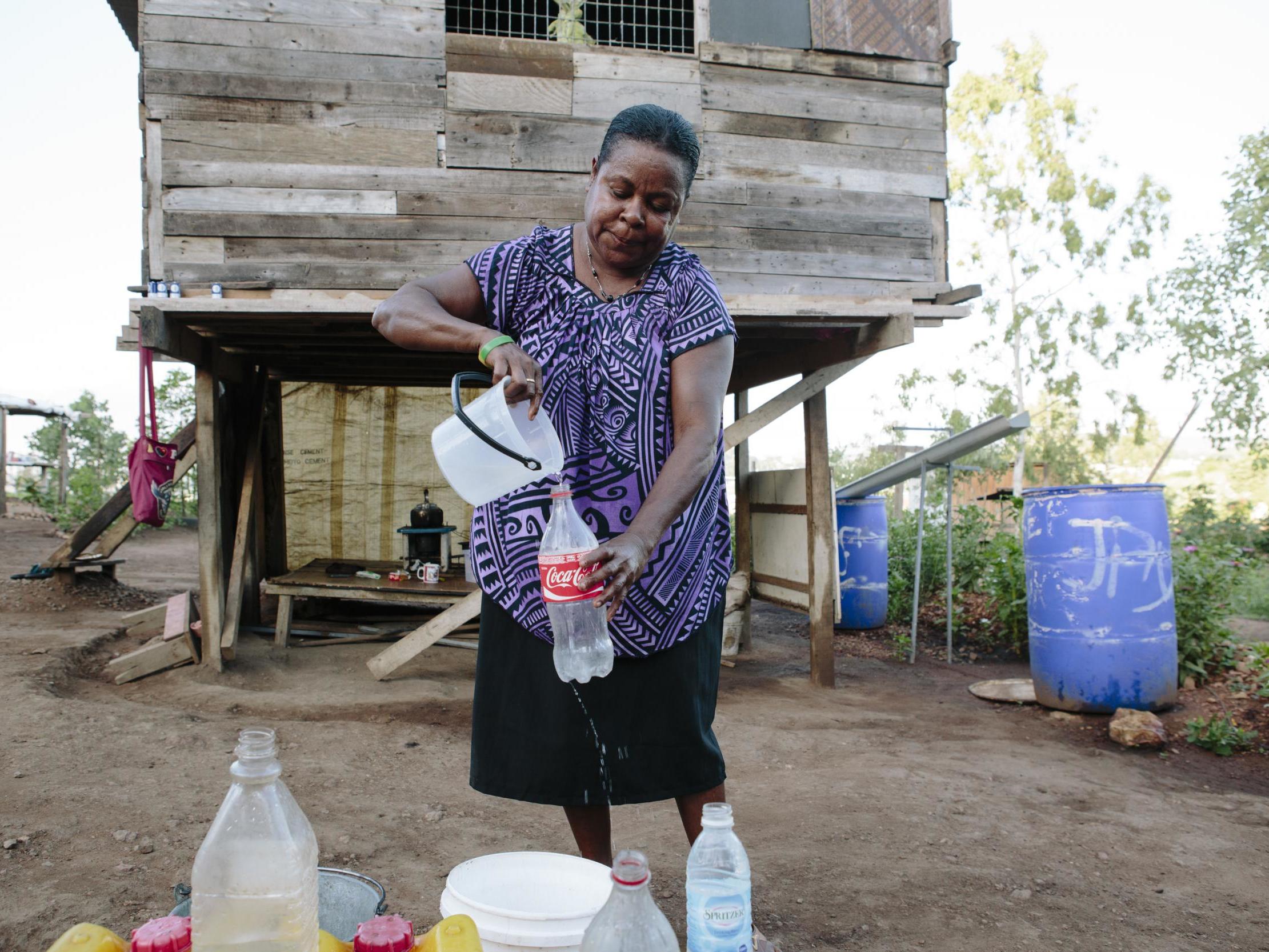Countries with twice rainfall of UK still lack drinking water, charity warns
Climate change blamed for contaminating groundwater in Papua New Guinea and other parts of the world

Your support helps us to tell the story
From reproductive rights to climate change to Big Tech, The Independent is on the ground when the story is developing. Whether it's investigating the financials of Elon Musk's pro-Trump PAC or producing our latest documentary, 'The A Word', which shines a light on the American women fighting for reproductive rights, we know how important it is to parse out the facts from the messaging.
At such a critical moment in US history, we need reporters on the ground. Your donation allows us to keep sending journalists to speak to both sides of the story.
The Independent is trusted by Americans across the entire political spectrum. And unlike many other quality news outlets, we choose not to lock Americans out of our reporting and analysis with paywalls. We believe quality journalism should be available to everyone, paid for by those who can afford it.
Your support makes all the difference.The UK has experienced the driest start to a summer since records began in 1961, but safe drinking water remains in plentiful supply.
Others around the world are not so fortunate. According to the charity WaterAid, millions of people are going thirsty this year despite high levels of local rainfall.
The organisation has warned that climate change is having a harmful impact by making water sources increasingly unreliable. Increased flooding in some parts of the world has contaminated previously drinkable supplies.
Papua New Guinea, Sierra Leone and Liberia get around double the amount of rain that falls in the UK on average each year, yet at least one-third of the population in those countries is without clean drinking water.
In Papua New Guinea, where rising seas and extreme weather have tainted groundwater sources, the problem has become severe.
The number of people without access to clean water close to home has increased to 4.8 million people – 63 per cent of the population.
“Not having clean water to drink is not, for most people, due to a lack of rain,” says Jonathan Farr, senior policy analyst on water security and climate change.
“For the one in nine people around the world – 844 million – who do not have clean water close to home it is usually because there is not enough investment in systems to ensure rainwater is captured, stored, treated and piped effectively.”
Some countries do still have significant groundwater reserves, but have struggled with a lack of investment in the infrastructure needed to deliver a reliable supply of clean water.
“In 2015, world leaders pledged to bring safe water and toilets to everyone, everywhere by 2030,” said Mr Farr.
“In July, during a high-level meeting in New York, they renewed this promise and now it is time to act.”
Earlier this year a WaterAid report revealed 60 per cent of the world is living in “water-stressed” areas.
The charity estimates that around 289,000 children under the age of five die from diarrhoeal diseases caused by water and sanitation problems.
Join our commenting forum
Join thought-provoking conversations, follow other Independent readers and see their replies
Comments